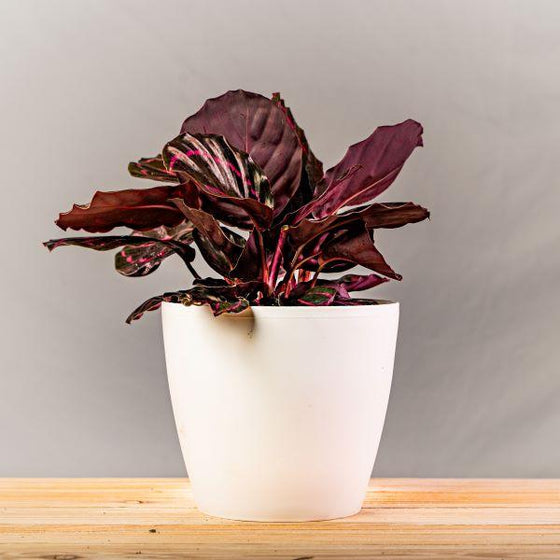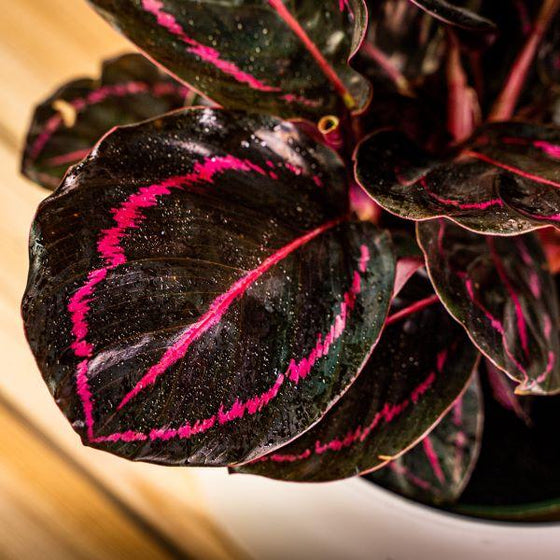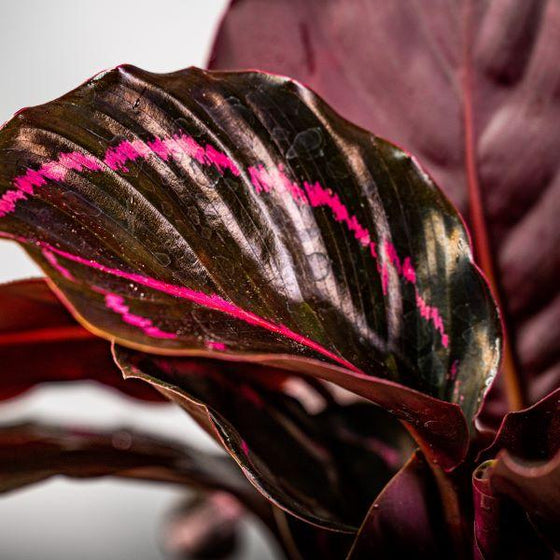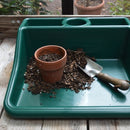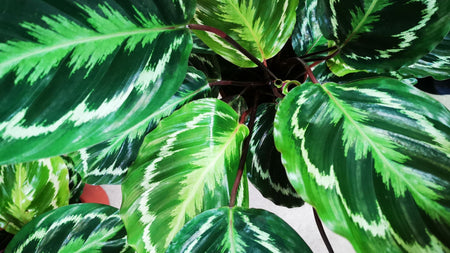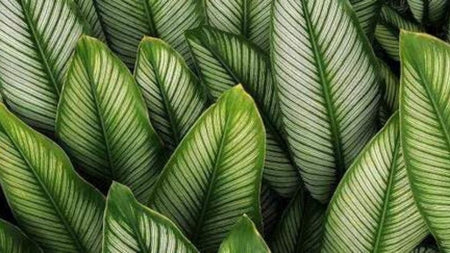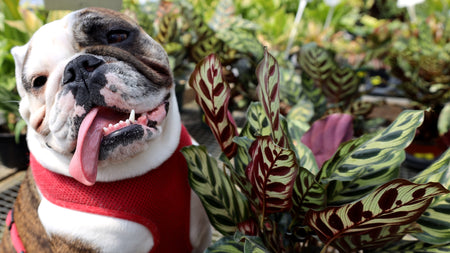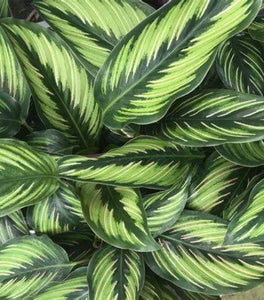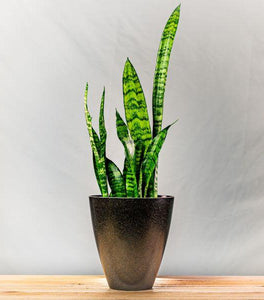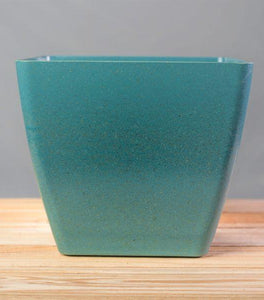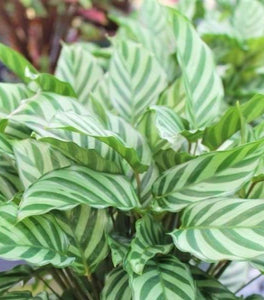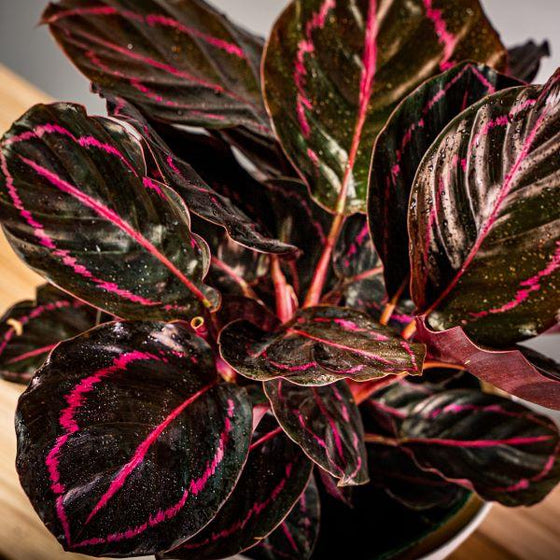
Images Depicted Range in Maturity & Container Size
Pots & Decorations Not Included Unless Otherwise Stated
Calathea Dottie Plants for Sale Online
Calathea Roseopicta Dottie is a trending indoor plant known for its shiny black leaves splashed with a hot pink halo. The unique foliage is elliptic and so intricate that it appears as if it wear hand-painted.
As a member of the Prayer Plant family, the Dottie likes a medium to bright, indirect light at most, as like its cultivar, any heavy direct sun will burn the leaves. Your Calathea Dottie plant care regimen should also include moderate to high humidity levels and the application of a houseplant fertilizer in spring and summer.
When watering your Calathea, we recommend waiting until the top inch of the soil is dry in between each watering. Additionally a well draining potting mix and a planter with drainage holes is crucial to protecting your tropical plant from root rot.
Please note that Calathea plants get a bad reputation for being finnicky and high maintenance, but as long as you follow this Calathea Dottie care guide, you should have no issues in growing a flourishing prayer plant.
Calathea Dottie is the perfect house plant for adding dazzling color to your home's décor! The vivid dark purple and pink leaves are stunning.
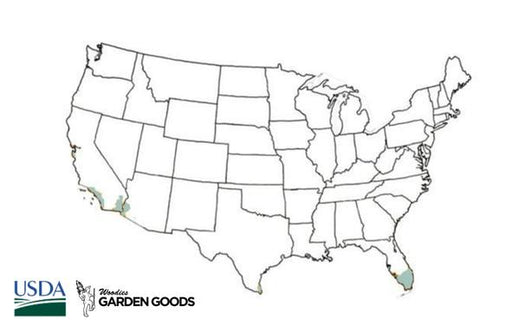
| Hardiness Zone | 10-11 |
|---|---|
| Mature Height: | 20 Inches |
| Mature Width: | 10 to 16 Inches |
| Classification: | Colorful foliage |
| Sunlight: | Fluorescent to bright, indirect light for best color |
| Habit: | Upright |
| Flower Color: | Small white & purple flowers in summer |
| Foliage: | Dark purple elliptic with bright pink halo |
| Soil Condition: | Well draining |
| Water Requirements: | Likes to dry out between watering |
| Uses: | Excellent indoors in offices or low light areas |
How to Care for Calathea Dottie
Be sure to read our planting instructions to ensure a healthy and happy plant for years to come!

How Much Sunlight Does My Calathea Dottie Plant Require?
Calathea Dottie does well with bright, indirect light. An eastern or northern-facing window would be ideal. A western or southern window would work, as long as a curtain or blind prevents direct sunlight from touching the foliage. This plant also performs well without bright, indirect light and only fluorescent light.
How much water does my Calathea Dottie need?
Calathea Dottie plants like to dry out occasionally between watering. They will tolerate staying moist but prefer not to have constantly wet soil. If their soil stays wet for too long, they could risk root rot disease and damage their root system. Calathea roseoptica appreciates humidity, but that can be hard to replicate indoors. Try placing a tray filled with water and pebbles underneath your plant's container. The water will evaporate slowly and consistently give your plant the moisture it needs.
How do I fertilize my Calathea Dottie?
Any all-purpose fertilizer will work for Calathea Dottie. Indoor houseplant fertilizers fall into two groups: water-soluble, liquid quick release, and granular, slow-release fertilizers. Jack’s Classic Indoor plant food works well as a powder, quick-release fertilizer. When you mix with water, the fertilizer will quickly provide nutrients to a plant that has been in a container for an extended time. Osmocote Indoor/Outdoor is an option as a granular, slow-release fertilizer that can be applied while potting and planting.

What is the best type of soil for my Calathea Dottie?
Calathea Dottie needs well-draining soil and prefers to have slightly dry conditions. Regular potting mix or potting mix with sand mixed in works well for plants potted in containers. Make sure the container you plant your Calathea in has drainage holes. Well-draining soil and drainage holes will ensure your plant does not retain more water than it needs. If your plant soaks up too much water, the root system could become damaged. Calathea Dottie likes to be root-bound.

